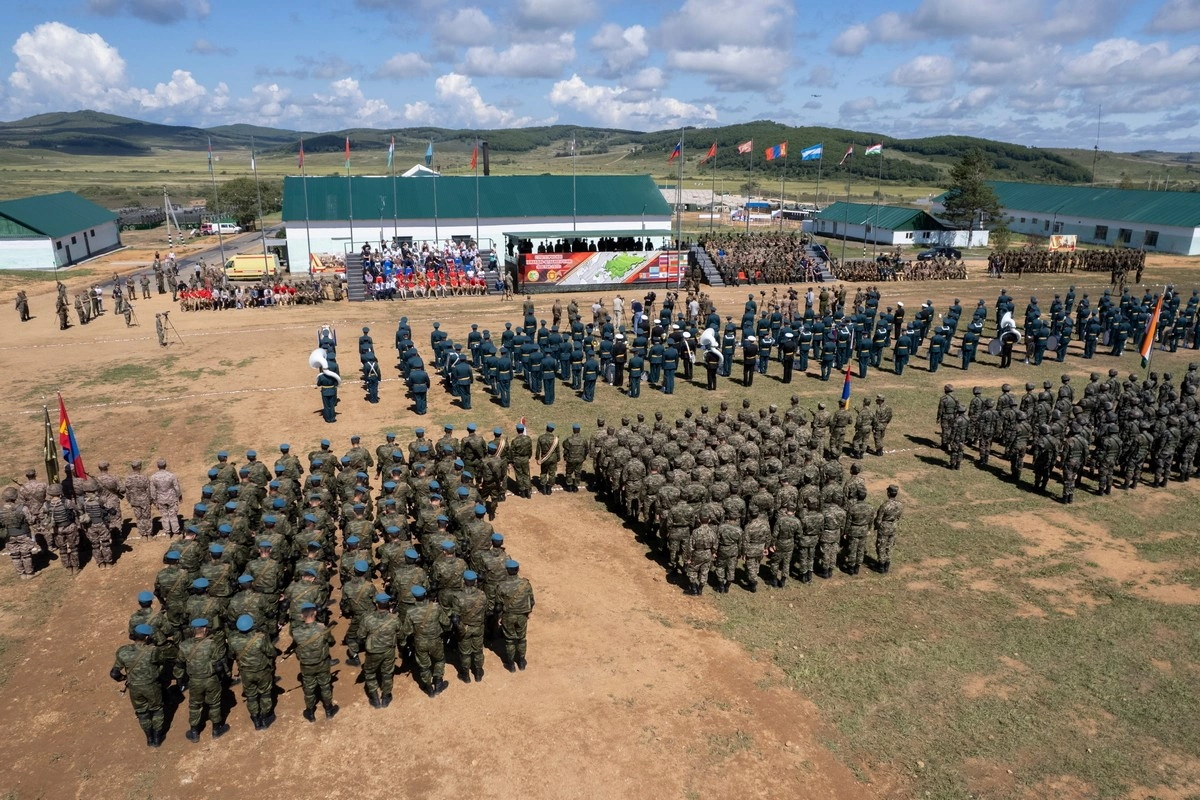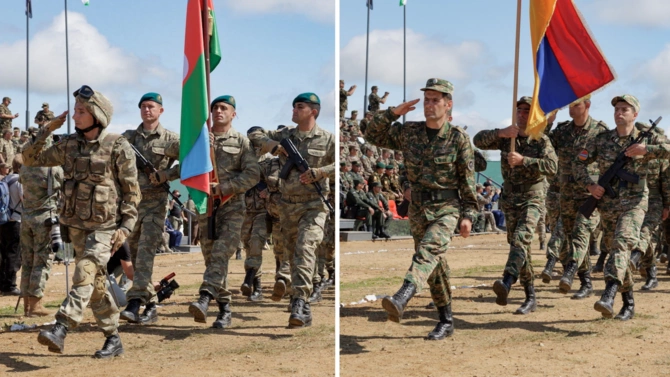
Vostok 2022, a week of military exercises in far eastern Russia, apparently saw 50,000 men from 14 countries on manoeuvres. Were there really contingents from both Yerevan and Baku?
Image: Ministry of Defence of the Russian Federation
With the ongoing invasion of Ukraine still showing no signs of ending, observers have taken very mixed messages from Russia’s Vostok-2022. It’s a vast multi-national series of military exercises spread across seven training ranges in Russia’s distant far eastern Primorsk territory. It also includes naval games in the seas of Japan and Okhotsk. The week’s manoeuvres, which end on September 7, reputedly involve over 50,000 troops, including contingents from over a dozen countries.
In Western headlines, the main journalistic angle has been discussions of what such large-scale exercises show about Russia’s military capacities, given that it can spare so many men so far from the European conflict. Newsweek questioned why the manoeuvres had been delayed a couple of days from the planned start of August 30. Some outlets doubted the official figures, quoting anonymous sources supposedly from the UK Ministry of Defence, that claim the actual number of troops is more like 15,000. Many others concentrated on how the cooperation of troops from India and China in Vostok-2022 might suggest that Russia is not as isolated over the Ukraine war as the West hoped. It was argued that this signalled the continuing rapprochement between former Communist rivals Russia and China, something of particular note at a time when tensions over Taiwan are growing. Beijing has not openly criticized Moscow’s policy in Ukraine and indeed suggested that the US was the “main instigator” of the conflict thanks to its backing for NATO expansion. This year was reportedly the first time China sent representatives from all three branches of its military (army, navy and air force) to a single drill in Russia.
More importantly for the Caspian Region, some writers have claimed that Vostok-2022 suggests a growing India-Russia-China power triangle that is set to place the post-Soviet states of Central Asia in an uncomfortable “geopolitical grip.” However, any such conclusions seem vastly overblown. By no stretch of the imagination could India and China be said to be true allies. The countries continue to have great swathes of disputed territories along their mutual borders, with stand-offs and skirmishes ongoing at Pangong Lake, Sikkim and the high mountain region of Eastern Ladakh over the last couple of years. And if you read the small print, it seems that the Indian contingent to Vostok-2022 was as few as 75 men.

Image: Ministry of Defence of the Russian Federation
However, it suffices to simply glance at the list of participating countries to cut through any sense that Vostok-2022 is symbolic of newfound alliances affecting the Caspian Region. According to Russian sources, these include both Kyrgyzstan and Tajikistan, nations that had their own violent cross-border clashes in 2021. Even more strikingly, the official list of partners includes both Armenia and Azerbaijan – long-term enemies who have yet to fully seal a peace deal following the 2020 Second Karabakh War. Both countries’ flags were flown at the opening ceremony, but understandably neither country’s press has given much coverage to these minor involvements. Indeed, Azerbaijan has not officially confirmed any such participation, according to at least one media outlet.
If the two countries were undertaking a cooperative military exercise of any importance, this would be a major newsworthy breakthrough. However, at most, their invitation is likely seen as mere diplomatic tokenism. The idea that both should appear on the official list of partner countries at all seems to raise questions about Moscow’s belief in the world’s credulousness.
Share on social media